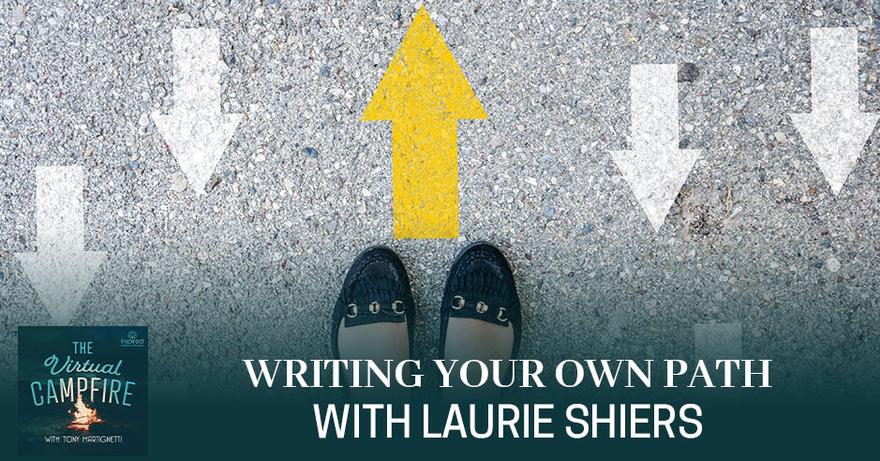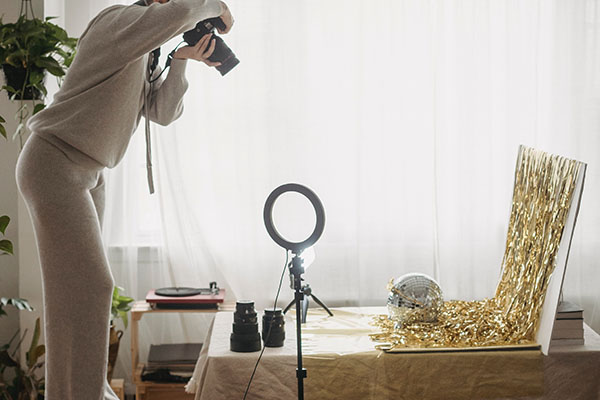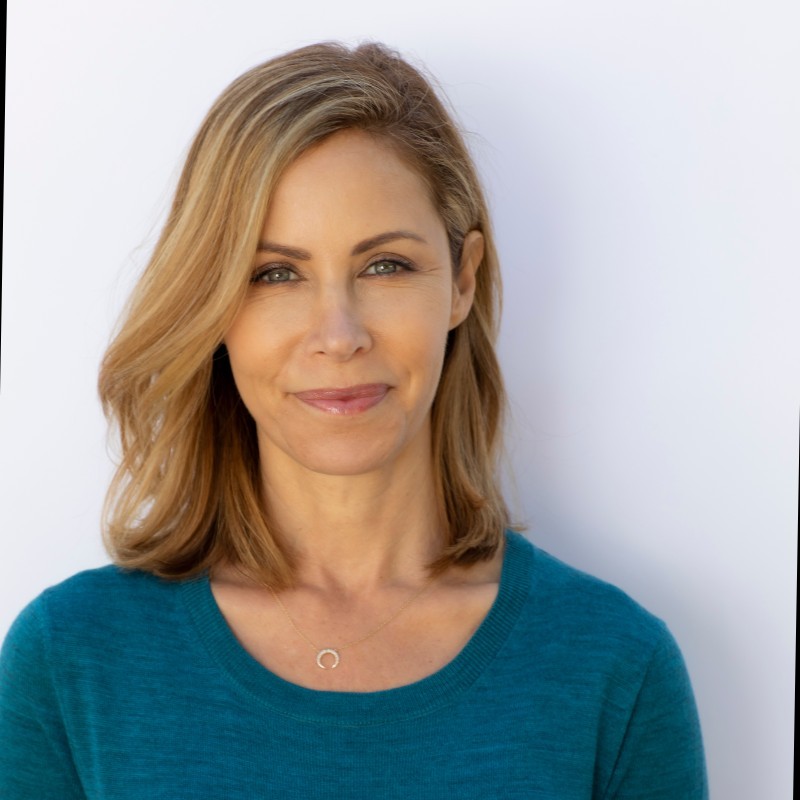Writing Your Own Path with Laurie Shiers

The direction of our lives is not set in stone. We all have the power to make choices and write our own paths. On today’s show, Laurie Shiers joins Tony Martignetti to share her personal success story and the twists and turns she took to find her calling. Laurie is the Founder of BrainChild Coaching. Before that, she was an aspiring actress, a copywriter, and even had a thriving corporate career. Flashpoints in her life ignited her to start making choices that fueled her passion for creating and being of service to others and letting go of the stable success she already had. Get to know Laurie’s story and be inspired to start writing your path.
---
Listen to the podcast here:
Writing Your Own Path with Laurie Shiers
Laurie Shiers is the Founder of BrainChild Coaching, a coaching company that seeks to help those with a creative mindset thrive professionally and personally. Her style of coaching revolves around letting her clients find the person they really wanted to be before the world told them what they should be.
It is my honor to introduce you to my guest, Laurie Shiers. She is a child of the '80s, who grew up in the San Fernando Valley and spent countless hours performing fake commercials in front of her parents' bathroom mirror. For several years, Laurie buried her literary ambitions beneath a successful copywriting career. Her words have helped sell countless LA Fitness memberships, LUNA bars and Jamba Juice, which makes her feel proud and icky at the same time. Laurie lives in Los Angeles with her husband and son, where she writes stories and coaches creatives to connect with the passion and purpose behind their projects. Laurie, I'm going to welcome you to the show.
Thank you, Tony.
I'm so thrilled to have you here. We're looking forward to knowing all the stories that have led you to be where you are now and helping people to tell their stories.
I'm excited/nervous/nervecited to dive in with you. I've been reflecting on this and the pieces that are relevant that make up my story. Some interesting things have surfaced as I've thought about it that I'm excited to share with you.
To give you a little bit of context to how this all comes together. On this show, we talked a lot about what's called flashpoint, the point in your story that ignited your gift to the world. Sometimes there are multiple. Sometimes it's just one. What I want to do is give you a space to share what you're called to share. With that, I'll give you the floor. Along the way, we'll pause and take some time to reflect on what we're seeing and see what shows up.
I'm a child of the '80s. I grew up in the San Fernando Valley. When I wasn't performing fake commercials in front of my parents' bathroom mirror, I was writing. I grew up in a neighborhood where there was a big group of kids and I was the littlest. They weren't the kindest of kids. There was a lot of what we now call bullying. I didn't know what it was then and a lot of exclusion. Although I wanted to be part of all of the actions, I had a very enthusiastic spirit. I wasn't always included. I would go home and write. My journal became my best friend, creative outlet and safe place to express the things that I couldn't to my family or my friends. I had no idea that was the beginning of any kind of path. As I look back, I see that that's the impetus for all of my creative endeavors that came after.
When I was 22, I had what I call my first big job. This was after growing up in LA and acting, auditioning and doing some guest starring roles in some films. I found my way into an advertising agency at 22 as the executive producer's assistant. He was the executive producer of the production arm of things. An interesting visionary guy who had a staff of three of us at the time. His partner had shown him something on his computer that was called the World Wide Web. This was 1994. This was when the World Wide Web was used for military and government things. It was not a thing. My boss, Scott, couldn't leave fascinated by this and couldn't stop thinking about it. One night he went home and had a dream. He came into the office the next morning on fire and said, "I've had this idea. It's to do a show on the internet." He knew my background, my interest in theater and film. He said, "The story is around a 22-year-old film student who lives in a house with five roommates.”
“They all share their stories through journal entries that they post on the world wide web." I was like, "Yes." Everything in me lit up. That began this big creative endeavor to put something online that had never ever been done before. We spent a lot of time dreaming up what this would look and feel like. I was the face of what was eventually called The Spot. One of the writers wrote my character named Tara Hartwick and many of the other characters throughout the few years that we were live online. It's funny. When I thought about it in the moment, I felt like I was lucky. There was an element of luck and timing with this, for sure. No one had done anything like this. We were pioneers. I didn't recognize until I look back and all of the gifts that my natural talent brought to this.
It's only looking back that I go, "This is the obvious right path for me to be. The reason that I'm going to succeed in what I'm doing here is because of what I brought. Not because somebody tapped me on the shoulder and said, “I had a dream.” It's taken me all these years to fully own my part in this. That was a moment. I don't know if it was a big break but it was a moment in time where all of a sudden, I had gone from doing little jobs in film, TV and little other projects to, I'm a thing. This is a thing.
Just because you’re good at it doesn’t mean it’s your calling.
It feels magical at that moment when you're like, "All this time up to this point, I knew I liked these things and I was good at them," but never was there an element of it all coming together and it feels magical. You feel lit up at that moment.
It is magical when I look back and when I think about it. There were parts of it that were challenging for me because I felt like I was still someone's assistant even though I wasn't. I felt like I was still beholden to Scott's vision even though I was creating my own. I felt like, in some ways, I couldn't speak out all of the things I want to say. I don't know at all that that's from Scott. That might've come from my upbringing and that's what I brought into the room. Magic happened with The Spot and we got a lot of attention.
Brandon Tartikoff, who was the head of NBC at the time said, "I want to make a show out of this." It ended up not happening but we got a lot of exposure to a lot of great people. Ultimately, formed a company that got bought out by America Online and they hired us. We were now a team of four. They hired us to create an entertainment network in Los Angeles and that hadn't been done until then. I went from being the writer and co-creator of this project to all of a sudden, I'm managing a staff of 75 people for AOL. It was like I was living someone else's dream.
I'm sure there are elements of imposter syndrome that start posing up here. Where you're like, "How did I get here? Do I belong here?"
It's huge. The voice in my head was like, "How did this happen?" The recognition, honestly, I didn't love it and like it. I didn't like who I was becoming and pretending. I didn't like what I was pretending to be. That went on for a little while. There were gifts in there too. There was a nice pot of money. That was something that I had never had before. I could pay off all my bills and I buy a home. That was wonderful, but I knew I was straying from myself. The project without AOL was meant to be a long-term thing but after a year, they let all of the original creators go. I was thrilled. I had my freedom back.
I thrive with freedom but I also like a little bit of constraint. It's very amorphous when I look back. It was a few years that I was writing. I produced a play, created a product and had some fun with that. I slowly like the high of being free faded. I went back to work at an ad agency. I did that for a while. I don't want to say it was like 7 or 8 years. I was just doing it. It's easy for me. At first, I got a job on the account side and as an account executive. Between AOL and the account executive piece, I realized just because I'm good at something does not mean I should be doing it.
There's something about that is meaty. There's an element of excellence, “The zone of excellence,” to borrow from Gay Hendricks. When you are in that zone of excellence, it doesn't mean that you're in your zone of brilliance. You rode this elevator up to the top and took it right down to where you're like, “I almost felt defeated.” I don't mean to put words in your mouth but it's what it felt like to me when I was knowing your story of almost like giving up and coming back up.
There was an element of that but there was also an element of power. At least with the AOL thing. There's an element of power recognizing that just because I'm good at it doesn't mean it's my calling. When you cut to the advertising piece, there was probably a little bit of an element of defeat as I think about it because here I was again, doing something that I was good enough at. Not my calling or what lights me up. My doing something might light someone else up. I was, in some ways, in part of my career responding to that, "Do you think I'm doing a good job? I'm going to keep doing it," like a happy little puppy. I was, at this point, in my advertising career where the shine was off the apple. I'd worked on some interesting accounts.
I loved collaborating. I love the creative process but I knew I needed to do something different. I wasn't sure exactly what that was. Out of the blue, my little brother died. That was my life before Robbie died. It was an accident. It was nothing that anybody could have seen coming. After that happened, I couldn't pretend anymore. I couldn't go and do something because I was good enough, I was good at it or it was making someone happy and making some money. I literally lost the ability to pretend.

Give life meaning. How old was he?
He was 36. Not that little. We were five years apart. He was my person and witness to my weird childhood, everything in my neighborhood, family and my life. There was a time when we weren't close but as adults, we were close. That happened and everything fell away. It's the easy way to say it. It was a process. I knew that I couldn't go back and work at the agency where I was working. After a time, I know they didn't want me to because I wasn't doing my job anyway. I was staring out the window. I did some soul searching and figured I love connecting with people, especially one-on-one. I want to be of service.
One of the things that shaped my young life in addition to having a journal, was having a great therapist. He saved my ass. I was probably pre-suicidal. I was a messy teen and had a lot of angst and feelings. He was my sounding board. We still have a relationship. I don't go and see him regularly. I haven't for several years but we've always kept in touch. After this happened, I went and saw him. I don't remember exactly how it went down. We did some processing, obviously, around what happened with my brother but then I was saying, "There's something more for me. I know it. I wonder what it is that you see." We were talking about it. He said, "You should be sitting where I'm sitting, Laurie." I burst into tears. It was emotional for me. I took it to heart.
I went back to school at Pacific Oaks in Pasadena. I had almost finished my bachelor's degree, not quite. That was always a thing for me. There was no good reason I didn't go back and finish. I was looking for a program where I could go and finish up whatever bachelor's things I need to do and leapfrog into a Master's program. A Master's in Psychology. Pacific Oaks seemed like a great option. I got accepted. The piece I needed to finish was going to be a Degree in Human Development. The plan was to go right into the Master's program. I quickly found out that Pacific Oaks, at least for me, was not the professional school that I was looking for. I was looking for the program that makes it. You leave there. You have all of the tools and everything you need to start a therapy practice.
I was looking at what other universities that I could go to that were professional ones where I could get an education and get my degree in Psychology. What happened was something magical and weird. My husband and I have been together forever. Since I was 20 and he was 25. We've always had similar interests. There's a lot of overlap. For years, he was talking about going back to school and becoming a therapist. It seemed funny that the minute I was like, "I'm doing this." He was like, "Me too." At first, I was pissed. I found this school called Phillips. It was around forever. It's not around anymore. I went to their orientation. It was phenomenal. I came home. I told Brian about it. He was like, "That sounds amazing." He enrolls to go back to school and I'm finishing up the bachelor's over at Pacific Oaks.
We have this idea that we're both going to be in grad school together and it isn't it going to be great. He gets through the first semester and we look at each other. We're like, "No, this is not going to happen. Not two full-time parents, full-time working. There was no room." It was super intense. What he was learning was fascinating to hear about. I'd get the lowdown every night when he comes home. Anyway, it was a happy accident the way it ultimately shut down. What happened was him being a semester ahead of me allowed me to see what he was learning and what I would be learning. Once we decided what we're not going to do at the same time, he got a little bit of ground under his feet. I kept hearing about what he was learning.
I got clear that although it's fascinating what he's learning and I love it, I don't want to be in the room with it eight hours a day. He is built for this. This is his jam. As this was happening, the agreement that I made after my brother died is that I'm not waiting to live my life and for anyone's permission. Now I'm going to start getting to work. I thought I'm just going to enroll in a coaching program, see how I like it and go through it. If I hate it, I'll still go back to school and get my Master's in Psychology. I'll do the hours. I didn't have any expectations. I knew that I needed to move forward. I enrolled with CTI. The first piece that you do with CTI is, they call it fundamentals. It's like a four-day workshop. Did you do CTI, too?
No, I went to AIPAC’s college program.
I don't know if they do it the same way but CTI introduces you to all of their pieces in one weekend, then you go and decide if you're going to join the bigger program. Anyway, Brian's over here doing this therapy at school. I go to CTI. I sign up for the Fundamentals course. I have no expectations. I just know that this is my next step. I walk in. Everyone's putting their name tags on, walking around and asking each other, "What is your dream?" This will tell you a lot about my state of mind. I heard this question and I wanted to punch everyone in the face. I was pissed off about that question. It made me violently angry. It's only in hindsight now that I see that. I was pissed because I didn't have one. I didn't know what my dream was. How dare you ask?
There’s nothing wrong with you except that you thought something was wrong with you.
It's funny you say that because there are many people who are walking around not having a dream or at least not having clarity on what they want. That reaction is probably something that people deep down would have. They're just not acting out and wanting to punch people in the face.
They don't tell everybody about it, maybe. You know how this story ends. After the end of that weekend, I was like, "Sign me up. I love this." At the end of the day, I went through the program. I'm a working coach. My husband is busy at this time, during COVID, busy therapist. The chips fell where they were meant to.
Let's talk about what happened after that because you're a working coach. You've come to this point but you're not doing typical coaching. You're doing a different type of coaching, which connects back to your earlier days of who you are.
I've come to incorporate all of it. I love creatives. I feel like those are my people. I realized like anyone who's willing to play and open-minded enough to explore the creative process, whether or not they want to make a work of art. Creativity applies just as much to the way we live our lives. Some of my clients are artists and some are school teachers. People who are open and available but not necessarily artists by trade.
That's what I enjoyed about hearing the context of what brought you to what you're doing in the world. It's not like you threw away your past and started something new. It's all an intertwined and interweaved story that created who you are.
It's taken me some time to own that. These past years, I've written a couple of books. One with David Taylor-Klaus, Mindset Mondays. Another one is called, Reinventing ELOISE, which is a story that's loosely based on my childhood. That's being shopped. I launched and created a product in the process called Creative Block, which I made for myself because I needed help getting out of my own way. I saw these things as very disparate. It wasn't until I was working with my own coach who helped me see, "No, these are different expressions of the same thing."
It's brilliant that when you can't see your own brilliance, you have to step back, pause and say, "All these things come from my ability to see the brilliance in other people. That ability to be creative on my own is what I'm unlocking into other people."
It feels like such a gift to be able to do that. I feel like I'm giving people a present when I can see something that they can't. I love doing that.
I want to take a little bit of a detour. Let me start before we get there. With the exception of your brother, which I know is the hardest part. What has been the hardest part of your journey beyond that you struggled with the most?

It's been learning how to like and love myself. Glennon Doyle says a better version of this, “There's nothing wrong with you except that you thought something was wrong with you.” That is at the heart of everything for me. It's the healing that many of us need to do around our self-image and self-love. It's what you call yourself in the world, what you do. There's a piece that feels like an imposter or doesn't feel good enough. In my case, my words and ideas aren't going to be better than someone else's. It's a story. It's not the truth.
It's powerful knowing the words coming out of your mouth and feeling them. It's not just knowing them. They resonate. It means so much to know that you can go through the journey you've had and come to realize that now you've connected with who you are. You can start to love yourself and we all can. It takes some time to figure out that that's the answer. Loving yourself is the answer.
The copywriter in me is always playing with different ways to say that. I feel like, in some ways, some people have an aversion to that kind of language and that's also okay.
I'd like to shift gears a little bit and talk about what advice would you give to people who are struggling to connect with who they want to be in the world. What are the life lessons you've learned that you want to pass on?
I always come back to this idea of the question, what did you love to do when you were ten? What absorbed your attention to the point where time would go by and you would get lost because you were doing the thing? Whether it's playing Superman in your room, building Legos, writing stories or performing commercials in the mirror. What was yours?
For me, I loved to draw and paint. I was creating rooms. For some reason, I felt like I was going to be an architect. I would create rooms with different environments and feelings. One would be a jungle-type setting. One would be like the water. One would be more electronic and a little more technical. That's what I would do.
Do you draw them? That's how you do it?
I would draw and color them in with crayons or paint them. I did this over again in different places. It's funny. I knew you would go to this place of journaling prompts, which is amazing. People need to imagine more and having some prompts that get them thinking deeply.
The key is not moving super quickly from one to the next. Give yourself a pause.
I did this with all my clients. I give them custom prompts based on where they're coming from and what's up in their life. I’d get them to open up and write that way because there's something different that happens when you write versus when you speak or think it. It's a different kind of way to get the message in or out.
What other prompts do you have to share with us? Do you at least have one more?
There's an exercise I love to do. It's a little bit more of an exercise than a prompt but I'll share it with you. Whenever I have something up, like there's something that's bugging me or something is going on. If I can, I like to sit down and write about it. Write about it fallout like, "This is happening. This is why I'm pissed. This is what's going on." It's like purging on the page, whatever, get it out. I take a few deep breaths. I put the pen down, shake out my hands and maybe close my eyes for a minute. I come back to the new blank page. I think about my what and how my wise older self would respond. I go again and I write another full page. I don't pick up the pen. I don't think too hard. If I don't have a word to say, I don't have a word to say.
It's very stream of consciousness. That's what the other version is meant to be also. You're purging yourself as a stream of consciousness and so is this wisdom. What I and my clients find is there are things on these pages that you did not see coming. You did not expect to have this call and response exactly as it is. There's some wisdom in there when you tap into it.
I'm feeling this. I can't wait. I can start writing a lot better.
You don't have to wait. It's a tool that you can use any time. The key is not moving super quick from one to the next. Give yourself a pause.
So much is coming up for me. We're shifting gears into our last question, which is, what is one book that has had an impact on you in the way you think?
It's the one that's sitting on my desk that I'm reading and rereading. It's Untamed by Glennon Doyle. It is great. Her story of becoming untamed and the way she weaves all these different stories in her life, I find inspiring. I'm a little in awe of her and the way that she expresses herself.
I'm going to ask you one more question because now I'm compelled. What is the book you wish you wrote?

Big Magic by Elizabeth Gilbert.
That's a good choice too. I've read that one but I've never read Untamed. I keep on getting the prompt on that one. I'm going to have to dig into that.
You will not be sorry. It's it is a gem. She's incredible. A friend of mine loaned me the book. About two hours into reading it, I bought another copy on Amazon for her because I had already been highlighting the pages. It's good.
Laurie, this has been such an amazing time to spend with you. First of all, knowing the ups and downs of your story, beautiful insights and being in your presence, it's been amazing. Thank you. I also want to give the readers a way to find out more about you. Where can they find you?
You can find me on my site, which is BrainChild-Coaching.com.
I also want to thank the readers for coming on the journey with us. I hope you enjoyed this and I hope you are journaling with all of these prompts that we've given you. Thank you again, Laurie.
Thank you, Tony. It is wonderful. I love that you're doing this. I feel lucky to be a part of it.\
Important Links:
- Laurie Shiers
- Mindset Mondays
- Creative Block
- Untamed
- Big Magic
- Apple Podcasts – The Virtual Campfire
- Facebook – Tony Martignetti
- Twitter – Tony Martignetti
- LinkedIn – Tony Martignetti


 I’m fascinated by human behavior and insatiably curious about what makes us act the way we do. I earned my degree in Human Development with an emphasis on social change from Pacific Oaks College. I’m a Certified Professional Co-Active Coach (CPCC) through the Co-Active Training Institute (formerly CTI), one of the preeminent coaching organizations in the world. I’m also a Professional Certified Coach through the International Coach Federation, the global governing body of coaching. For the past three years, I’ve served on the leadership team for master coach, Rich Litvin, and his community. And before that, I had a long career in advertising, creating campaigns for brands in the health and wellness space.
I’m fascinated by human behavior and insatiably curious about what makes us act the way we do. I earned my degree in Human Development with an emphasis on social change from Pacific Oaks College. I’m a Certified Professional Co-Active Coach (CPCC) through the Co-Active Training Institute (formerly CTI), one of the preeminent coaching organizations in the world. I’m also a Professional Certified Coach through the International Coach Federation, the global governing body of coaching. For the past three years, I’ve served on the leadership team for master coach, Rich Litvin, and his community. And before that, I had a long career in advertising, creating campaigns for brands in the health and wellness space.
0 comments
Leave a comment
Please log in or register to post a comment